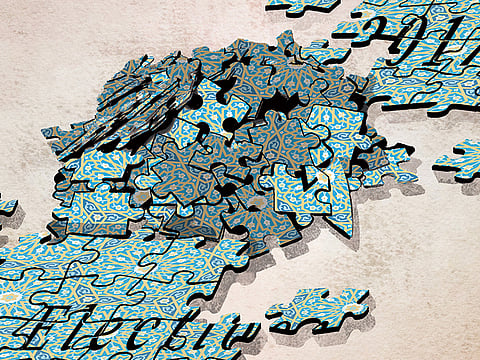Rouhani may get an easier ride
May 27 vote for Speaker will be first test for supporters of both the president and Khamenei to have a majority

The new Iranian parliament has resulted in a patchwork of factions and this week’s second round of Iran’s parliamentary elections did not give the supporters of President Hassan Rouhani the clear majority that he craved. However, there are signs that he may find it an easier parliament to work with than the previous one, and the outcome of the election for Speaker on May 27 will force the new members to show where their allegiances lie.
The 10th parliament has 290 representatives, of whom 222 members were elected in the first round, and the April 29 second round decided the 68 remaining seats, although one seat won by Minoo Khaleghi, a Reformist candidate from Isfahan, remains unoccupied after the Guardian Council disqualified her after her win in an unprecedented move that is being questioned.
The main divide in parliament is between the so-called Reformists who back Rouhani, and the Principlists who back Supreme Leader Ali Khamenei, and both sides claim they have won a majority. The reason that there can still be such uncertainty is because the parliament includes many independents who did not declare for either side during the campaign, and even those who declared may well change sides as the bargaining gets underway in preparation for the May 27 vote.
Reza Haghighatnejad of IranWire reports that immediately after the second round, the Principlists claimed to have won at least 110 seats, and said they could count on the support of 40 independents, which, if true, will give them 150 seats and a majority in parliament. The Reformists countered this by saying that they have 129 seats and can count on the support of 80 independents.
The two leading candidates for the speakership are the incumbent Ali Larijani, who has a more conservative background, and Mohammad Reza Aref, a Rouhani supporter who headed the Reformists’ list of candidates during parliamentary elections and won the highest number of votes in Tehran.
Although Aref is a close ally of Rouhani, the president may benefit from having Larijani as Speaker. IranWire points out that several media outlets close to the Rouhani government have supported Larijani’s speakership, even though they supported Aref and the Reformists during elections. Their argument is that Aref lacks the parliamentary record and the political character necessary to be Speaker.
The key point is that the more conservative Larijani could be an effective intermediary between Rouhani’s government and the Principlists and hardliners backing Khamenei, giving the government the ability to bargain with the latter factions. The Rouhani supporters who back this line of thought point to the success of the nuclear deal, which both Reformists and hardliners believe would never have got through parliament but for Larijani’s support.
Continued pressure
Reformist paper Etemad has reported that only 11 of the 80 MPs who signed a bill to reject the nuclear agreement have been reelected, which will ease Rouhani’s government’s worries about implementing the agreement, but some of his supporters argue that Larijani will be needed to help counter continued pressure from hardliners on the nuclear front. This support will also be important when Rouhani starts to seek some modest social reforms, such as allowing more access to the internet.
In addition, if the reformist Aref wins the speakership, hard-line figures and institutions outside parliament may well react aggressively and sour the political atmosphere in the country, which would both make getting anything done harder and also create difficulties for Rouhani when he makes his run in 2017 for a second term as president.
The new parliament splits into five rough groups: Hard-line Principlists, moderate Principlists, Reformists, supporters of the government and a mixed group of independents. The speaker will have to work with all five groups, which is something that Larijani has shown he can do, whereas Aref lacks relations with any of the Principlists, and may not be able to control parliament.
What may make things easier is the 80-odd independents in the new parliament who may be open to working with Rouhani, argues Adnan Tabatabi of Carpo in Bonn, writing in Al Monitor. He points out that they are all from outside Tehran and have explicit priorities of improving facilities and attracting government spending to their constituencies, especially on infrastructure that comes from the central government’s budget.
So these MPs will want good relations with the government in order to attract these large investments, even if they are friendly with the conservatives who may compete with investment offers from whatever seminaries, foundations or private entrepreneurs they can access. If this happens, then Rouhani will have won his parliamentary majority for economic reasons, despite the ideological disagreements between the factions.
Rouhani is well aware that the economic situation in much of Iran remains as tough as it was through the years of sanctions, and he is anxious that the economic benefits of the nuclear deal and the opening up to international investment trickle right through the economy to its remotest corners, which will help him when he stands for the presidency in 2017.



